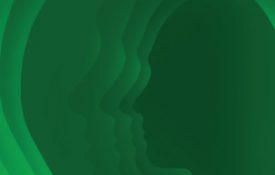-

New Content From Current Directions in Psychological Science
A sample of articles on conceptual clarification, language acquisition, insights from deep neural networks, how to reduce academic procrastination, improve learning, craving, and more.
-

New Research in Psychological Science
A sample of research on racism, well-being in childhood and adult health, cultural differences in delayed gratification, problem solving in animals, and much more.
-
Changing Perceptions About Harm Can Temper Moral Outrage
Comprehensive sex education works. Years of research show that it is much more effective than an abstinence-only approach at preventing teen pregnancy. In fact, abstinence-only programs may actually increase unplanned pregnancies and can contribute to harmful shaming and sexist attitudes. Yet abstinence, or “sexual risk avoidance,” programs persist in the U.S. Why? Ultimately many people believe that teenagers should not have sex. If adolescents just abstain, they reason, unplanned pregnancies and sexually transmitted diseases will no longer be a problem.
-
A Shortcut for Feeling Just a Little Happier
Lately, my back has been hurting. I did something weird in the gym, resulting in a dull ache, and now I’m taking it easy. I appreciate the feedback the pain provides, because I would like to be able to walk upright for a few more decades and don’t want to risk a more permanent injury. Still, I don’t enjoy it, so I’ve been taking acetaminophen to blunt my discomfort. Back pain is normal, but a different sort of hurt is even more typical in my life, and probably yours as well: mental suffering.
-
Kids’ Mental Health Is a ‘National Emergency.’ Therapists Are in Short Supply.
At the beginning of the year, I started hearing from readers across the country that there were long waiting lists for child and adolescent mental health providers. Many of their kids were really struggling, often with anxiety and depression. When these parents tried to find help, they found there was, in some cases, up to a six-month wait to even get in the door at a therapist’s office for an assessment. This shortage is not just anecdotal, and in some places it existed before the pandemic produced so much suffering that the American Academy of Pediatrics declared child and adolescent mental health a “national emergency” back in October.
-

Self-Injury: Can the Internet Play a Positive Role?
To speak about self-injury and how online communities might help, Emma Preston, an APS member and graduate student at the University of Southern California, joined APS’s Ludmila Nunes.

